From the Chicago Reader (January 1, 2000). — J.R.
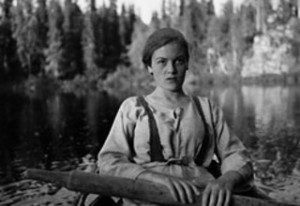
When I heard that Aki Kaurismaki was making a silent black-and-white feature, I expected something arch and postmodernist. Yet in spite of a few flashes of mordant humor, some wonderfully spare sound effects, and a few minimalist lighting schemes that suggest 50s Hollywood, this 1999 film is a moving pastiche whose strength is its sincerity and authenticity. A fallen-woman story set in the present, featuring a farm couple and an evil playboy from the city who lures the wife away, it conveys the sort of purity and innocence associated with silent cinema storytelling, including a love of nature and animals, a taste for stark melodrama, and an emotional directness in the acting — evocative at various times of Griffith in the teens and Murnau in the 20s. Accompanied by a live orchestra at the Berlin film festival, the film is now furnished with a music track featuring the same score and musicians that’s essential to its power. No other film by Kaurismaki has affected me as much as this one, but if you don’t love silent movies it may come across as a pointless exercise. With subtitled Finnish intertitles. 76 min. (JR)
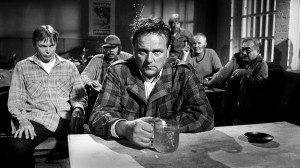 Read more
Read more
From the Chicago Reader (August 11, 2000). — J.R.
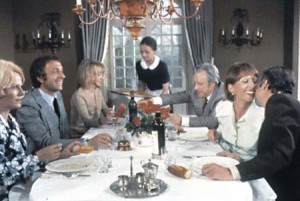
Luis Bunuel’s 1972 comic masterpiece about three well-to-do couples who try and fail to have a meal together is perhaps the most perfectly achieved and flawlessly executed of all his late French films, produced by Serge Silberman and coscripted by Jean-Claude Carriere. The film proceeds by diverse interruptions, digressions, and interpolations (including dreams and tales within tales) that, interestingly enough, identify and associate the characters, their class, and their seeming indestructibility with narrative itself. One of the things that makes this film as charming as it is, despite its radicalism, and helped Buñuel win his only Oscar, is the perfect cast, many of whom bring along the nearly mythic associations that they acquired in previous French films (Delphine Seyrig, Stephane Audran, Bulle Ogier, Jean-Pierre Cassel), as well as many Buñuel regulars (Fernando Rey, Paul Frankeur, Julien Bertheau). Frightening, funny, profound, and mysterious. A restored 35-millimeter print will be shown (101 min.). Music Box, Friday through Thursday, August 11 through 17.
— Jonathan Rosenbaum
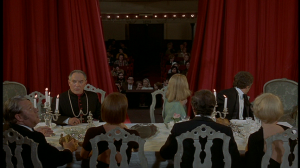 Read more
Read more
From the Chicago Reader (September 15, 2000). — J. R.
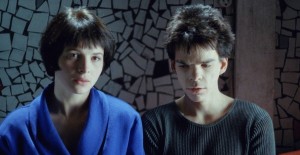
One festival brochure describes this 1986 feature as a “dazzling film noir thriller,” yet the distinctive talents of French director Leos Carax have relatively little to do with storytelling. The vaguely paranoid plot concerns a couple of thieves (Michel Piccoli, Hans Meyer) hiring the son (Denis Lavant) of a recently deceased partner to help them steal a cure to an AIDS-like virus, but the noir and SF trappings are so feeble that they function at best as a framing device, a means for Carax to tighten his canvas. The real meat of this movie is his total absorption in the wonderful leads, Lavant and Juliette Binoche, which comes to fruition during the former’s lengthy attempt to seduce the latter, an extended nocturnal encounter that the various genre elements serve only to hold in place. The true source of Carax’s style is neither Truffaut nor Godard but the silent cinema, with its melancholy, its innocence, its poetics of close-up, gesture, and the mysteries of personality. Bad Blood uses color with a sense of discovery similar to that found in the morbidly beautiful black and white of Carax’s Boy Meets Girl, and its naked emotion and romantic feeling are comparably intense. Read more





